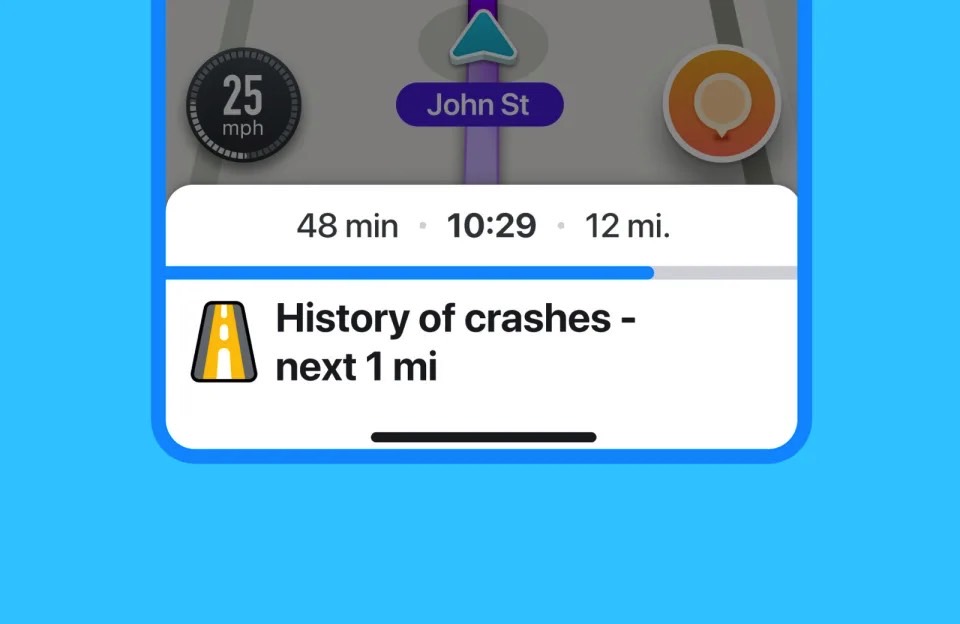Google Maps might be Google’s main navigation app, but it’s Waze that sometimes gets the more exciting features. For instance, there’s a new crash history notification feature that Waze is rolling out to its users. As the name implies, Waze will now tell you if the road you’re on is dangerous based on historical crash data. In turn, you might pay better attention to the road ahead, and this could reduce the risk of accidents.
Unsurprisingly, Waze’s new feature relies on artificial intelligence (AI), as Google is looking to bring more AI capabilities into its apps, Google Maps and Waze included.
Google announced the new crash history alerts feature on Waze’s blog. The latest safety feature uses AI to analyze reports from the Waze community combined with information about your route to display crash history alerts. The AI will look at data such as typical traffic levels, the type of road, elevation information, and other parameters.
“If your route includes a crash-prone road, we’ll show you an alert before you reach that section of your journey,” Google explains. The alerts will look like the one below, informing the driver that the upcoming road section might require more attention.

Google uses statistics to explain the addition of the new safety feature to Waze. About 3,700 people are killed globally in crashes every day, per CDC data. Crash injuries are the eighth leading cause of death globally, the blog explains.
Moreover, Waze users around the globe report accidents about every two seconds. The Waze detail might be why Google is bringing this feature to the Waze app first.
Waze is so popular with drivers because of the nature of the navigation experience. The app offers real-time warnings about incidents along the way that come from other fellow drivers who also use Waze. The crowdsourced information can make Waze faster and more reliable, as the app will adapt the navigation experience to what’s actually happening on the road.
Google Maps also supports incident reports, and it’ll hopefully support crash history alerts in the future.
That said, Waze also wants to limit the number of notifications Waze users see, which could always lead to crashes. That’s why it’ll limit the number of crash history alerts drivers see. The on-screen notifications won’t show up on roads you might regularly navigate. The idea here is that you probably know your surroundings and the risks well enough.
But crash history alerts will come in handy when navigating to a destination you haven’t visited before or when taking roads you haven’t been on before.
Once you see the notification, you won’t have to do anything. And you certainly don’t have to panic. This is just an alert that a section of your planned travel might be more hazardous.
Google announced a new safety feature for Waze, crash history alerts that will tell you if a road has a history of accidents – what you need to know.








